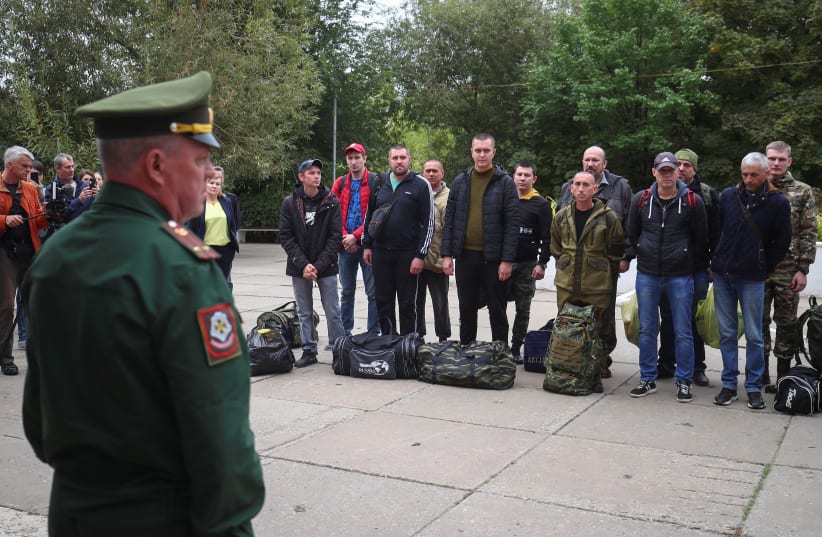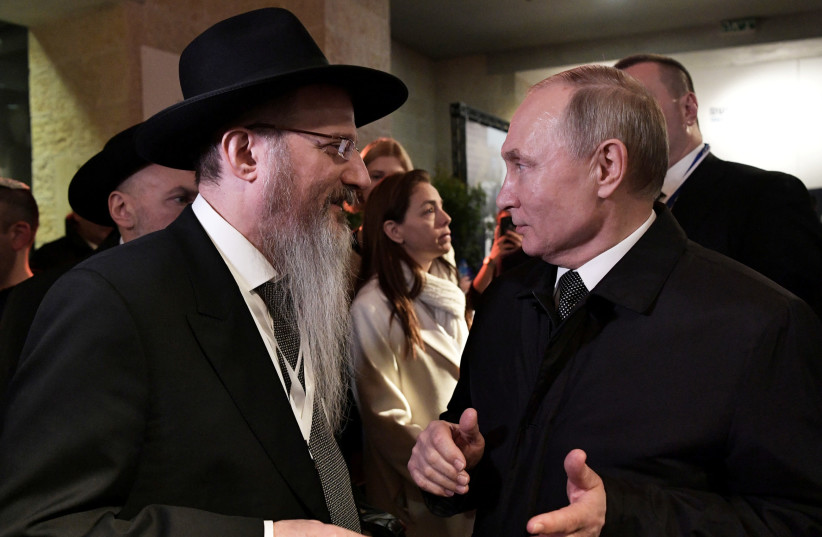Some Russian Jews fear returning to Russia and others are seeking Israeli passports, in the wake of Russian President Vladimir Putin's partial mobilization of citizens for fighting in the Russia-Ukraine War.
“Everyone wants an Israeli passport, but there’s a year’s wait to get an appointment,” Russia’s Chief Rabbi Berel Lazar said in an interview with Mishpacha magazine.
“I don’t believe they’re quite ready to leave,” Lazar said during the interview regarding Russian Jews.
“People want security, to have a passport if they need one. But we haven’t seen a wave of aliyah – there hasn’t been a decline in the number of community members,” he told Mishpacha’s Hebrew magazine editor Aryeh Erlich.
Yet Lazar is quoted as saying that he also thinks Russian Jews are looking for a strong community in Russia. “They want some source of strength; they want a community at their side if something happens.”
“Everyone wants an Israeli passport, but there’s a year’s wait to get an appointment."
Russia's Chief Rabbi Berel Lazar
Putin's rabbi?
Lazar arrived in Russia in 1992 with his wife, Chani, in order to revive Jewish life in the former Soviet Union. He said that he now leads a network of 200 emissaries across Russia, most of them rabbis.
Lazar is considered to be “Putin’s Rabbi,” even though according to the interview, he hasn’t spoken to Putin recently.
“Rabbi Lazar says he hasn’t spoken with Putin since the war began, initially because of a strict COVID-19 protocol involving two prior weeks of isolation,” Erlich wrote. “And despite the rumors, he says he hasn’t received any instructions from the Kremlin regarding either taking a stand or keeping quiet.”
On the eve of Rosh Hashanah, Lazar received the annual letter of blessing from the President’s Office. Putin said in the letter, “It is most important that Russian Jews, who maintain their loyalty to the spiritual tradition of their ancestors, make a significant contribution to maintain the cultural diversity of our country.”
Protecting Russian Jews
“We’re doing all we can, using all our connections to protect Ukraine’s Jews as well as the many holy sites in Ukraine,” Lazar said. “Many family members of Russian shluchim [emissaries] are still in Ukraine and we’re doing all we can to help them and to give them moral support as well as financial assistance.”
Lazar told Erlich that the Russian authorities are aware of this assistance and know that there are no politics involved. “Politics and nationalist interests have nothing to do with us, and the Russian government knows this.”

